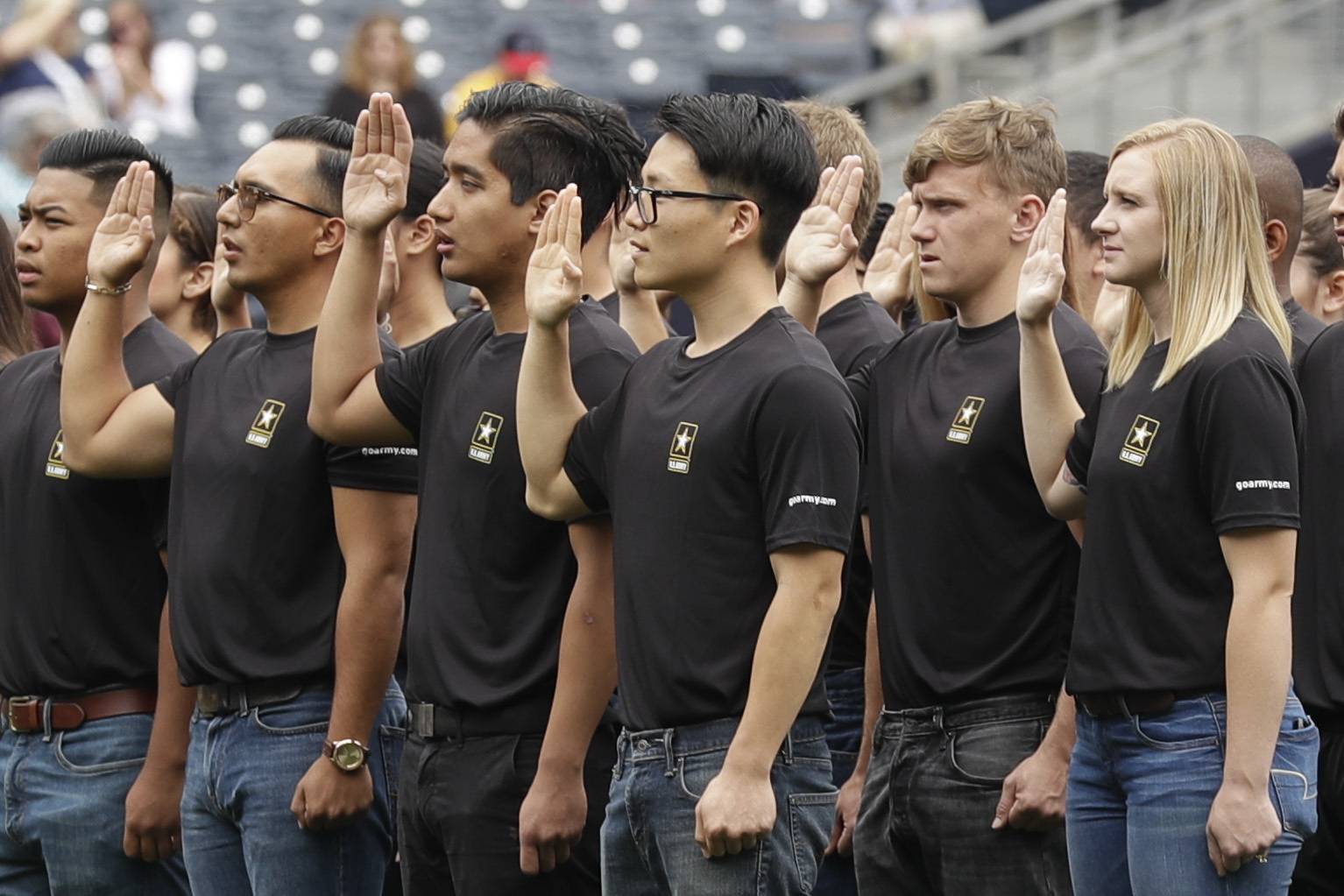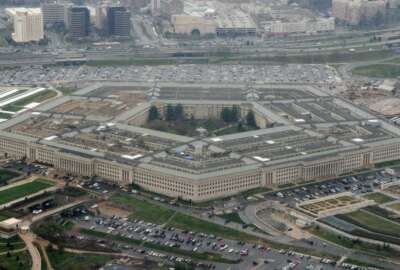This reserve military duty pay dispute is now in Supreme Court hands
Military reserve members are watching a Supreme Court case involving a Coast Guard reserve member, who claims the FAA owes him military pay differential.
Military reserve members and their civilian employers are watching a Supreme Court case closely. It involves a Coast Guard reserve member who claims the FAA owes him two years’ worth of military pay differential. A lower court ruled otherwise, so he appealed. Attorney Sean Timmons, a managing partner at Tully Rinckey joined the Federal Drive with Tom Temin to discuss the details of the case.
Interview transcript:
Tom Temin: Give us the outlines of this case.
Sean Timmons: Well, it’s been going on for quite a few years. But on June 24, 2024, the Supreme Court granted certiorari this case.
Tom Temin: Its air traffic controller Nick Feliciano versus the Department of Transportation.
Sean Timmons: It involves the Merit System Protection Board’s denial of differential pay to Nick Feliciano, an air traffic controller with the FAA and as a member of the Coast Guard Reserves.
Tom Temin: And it’s a Uniformed Services Employment and Reemployment Rights Act case?
Sean Timmons: The USERRA experts are divided on this case and how the Supreme Court’s ultimately to come down, but it could expand the access to differential pay. The Department of Transportation is trying to take a very narrow interpretation to say that, ‘Oh, your mobilization wasn’t specifically tied to a national emergency and it was specifically performing wartime duties.’ A differential pay is only owed during those particular predicate requirements.
Tom Temin: All right. So the way it works is then if you are on reserve and you get called up and it’s for a national emergency, then under law, the government has to pay you the difference between your regular pay for the government or any employer and your pay while on duty for the military?
Sean Timmons: Yes. And that compensation differential can be significant because if you just joined the military, your pay is, say, $2,000 a month. But you’re a police officer for the Capitol Police making, say, $5,000 a month. I’m just doing that line here. You could be a 3 or $4,000 a month compensation differential. So the employer here, the Department of Transportation is trying to save allocated budget resources. So we’re going to narrow the interpretation to say individuals who are only called in very limited circumstances would be entitled to this compensation differential. So if you be a volunteer for mobilization, basically you volunteer for a massive pay cut that you’re trying to say to the Supreme Court. The Supreme Court skeptical that interpretation and believe that differential pay access should be expanded.
Tom Temin: So how do we know that’s how the court thinks?
Sean Timmons: You can hear it from the arguments and the questioning you heard from Justice Sotomayor, Justice Kagan, Justice Alito, all very skeptical of the position that this should be narrowed.
Tom Temin: Right. So someone then under the way the lower court interpreted this and the way the FAA interpret it is that if you are called but it’s not for a national emergency, Coast Guard needs you, although why they would call up the reserves for ordinary purposes, I guess we don’t know. But if it’s not an emergency, then you just lose the differential. You just get paid by the military for that period?
Sean Timmons: Correct. You would just get your normal military compensation, which in some cases could be equal to your civilian employment or your federal employment. But often military is paid quite a bit less. Now, the military will respond, say, ‘Well, we have collateral benefits, which is retirement, housing, food, other compensation is not quantified. So there is a misnomer there. I mean, sometimes you are paid more than military if you’re getting free accommodations. However, often the composition can be quite significantly lower, especially if you’re a banking executive and you’re a pilot for an airline, you’re making $20,000 a year for an airline, you’re making $100,000 a year as a pilot for the Air Force. You’re talking about massive differentials in compensation. But in some cases, the pay is not that far off.
Tom Temin: We’re speaking with attorney Sean Timmons. He’s a managing partner at Tully Rinckey in their Houston office. And this gentleman, Nick Feliciano. Then what do we know about the circumstances of his assignment by the Coast Guard for that period of time, two years, and he’s saying that it was a national emergency?
Sean Timmons: Well, Nicholas Feliciano’s case is unique because he was called during Operation Iraqi Freedom and Operation Enduring Freedom. So both of those mobilizations, I would constitute, were based on national emergency. Congress specifically authorized use of force in response to 9/11 for Operation Enduring Freedom. And we authorize use of force under a continuing resolution to enforce the end of the Gulf War 1991. So Operation Iraqi Freedom and Operation Enduring Freedom were both continuations of congressionally authorized wartime activities. Even though they weren’t formal declarations of war, they were cases where Congress voted, debated and authorized the use of force, and then the Armed Forces to mobilize members of the team to fulfill the mission. Congress specifically appropriated funds and authorize. So to say it’s not an emergency or it’s not related to the requirements in differential pay it, in my opinion, is disingenuous.
Tom Temin: Right. So Feliciano was arguing against a civil service board. And then later the U.S. Court of Appeals for the Federal Circuit. Is the Coast Guard coming to his help in any way? Are they saying it certainly was an emergency, that’s why we got the guy down here.?
Sean Timmons: To my understanding, Coast Guardsmen remain relatively neutral in their advocacy here. I think they have a statutory duty to try to stay out of it. And the Department of Justice, unfortunately, has to defend the government’s invocation of the denial. So, the FAA here doesn’t want to pay and that’s under the DOT. So it’s kind of an interagency squabble here about who wants to do what.
Tom Temin: Right. And do we know whether he’s back to work during these intervening years as an air traffic controller?
Sean Timmons: That’s my understanding, yes. So he’s been reemployed. He was fighting for pay. He wasn’t receiving while he was mobilized.
Tom Temin: The Supreme Court heard this case. When and when do you think they’ll decide it?
Sean Timmons: They heard it back in October. And there was quite a few publications regarding the analysis. And the decision will probably come down in May or June, more likely June towards the end of the year.
Tom Temin: And do these kinds of cases pop up often, people suing for the differential pay that they were denied?
Sean Timmons: Not necessarily. Often many people don’t know they’re entitled to it. Many employers aren’t really tracking that. There’s even compensating individuals for it. And individuals who do try to effectuate their rights often settle pre-lawsuit. So these cases are exceedingly rare. But again, the Supreme Court is going to actually create a whole new chapter of case law, which will be interesting study for decades to come.
Tom Temin: But if the Supreme Court rules in Feliciano’s favor, then it would seem like that would be the case for everybody else now getting called that could be presumed it was for a national emergency and that people could simply expect to get that differential pay.
Sean Timmons: The Supreme Court Justice Kagan, Justice Thomas did allude to the fact of the scope of Pandora’s box here, meaning everybody is going to want to get in line now for competition. They weren’t paid and they weren’t provided. But again, the statute says what it says, Congress to appropriate funds to enforce the statute. It’s a whole other separate issue for the legislative branch to worry about. And yes, the Supreme Court does interpret that literally. I think they’re going to open up claims for individuals who come back and say, ‘Hey, I was shafted.’ And the good news about that is USERRA has no statute of limitations. So individuals who were denied enforcement of the differential pay 10, 20, 30 years ago. Technically, as the law exists now, won’t be barred by any statue of limitations to effectuate the legal rights.
Tom Temin: And you mentioned Kagan and Thomas, who are typically on opposite sides of just about every case. They agree that this is a Pandora’s box. And then you earlier mentioned Alito and Sotomayor also generally on opposite sides as agreeing in favor. So it sounds like he’ll win, but it won’t be unanimous?
Sean Timmons: It could be a 7-2 or an 8-1 decision. I think the court’s clearly going to decide on the factor that the statute and previous case law usually required close analysis to be deferential to the veteran. That’s in the legislative guidance all the way back in 1940. So I think the court is going if I had to put money in, I said the court’s going to rule in his favor, but there may be a couple of dissenting votes only because of the collateral nature of the expenditure associated with the relief granted.
Tom Temin: We’ll keep an eye on it.
Copyright © 2025 Federal News Network. All rights reserved. This website is not intended for users located within the European Economic Area.
Tom Temin is host of the Federal Drive and has been providing insight on federal technology and management issues for more than 30 years.
Follow @tteminWFED






